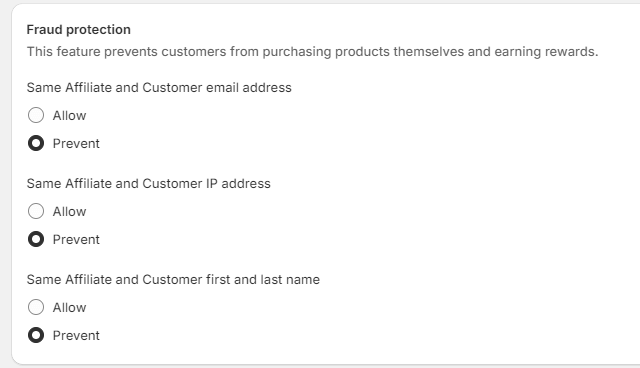In the world of digital marketing, affiliate marketing is a strategic partnership where collaborators promote products and services and earn based on sales.
And the key to this partnership’s success is compliance.
This article will provide everything you need to know about this field:
- Affiliate compliance definition
- Regulations that affiliates have to be compliant with
- A list of affiliate non-compliant & non-ethical actions
- Tips to keep affiliates compliant

Who regulates Affiliate Compliance in Affiliate Marketing?
Both affiliates and merchants must adhere to various aspects of affiliate marketing to ensure compliance.
Here’s a breakdown of the legal considerations that both parties need to comply with:
- International and regional regulations: Compliance with diverse regional laws, including consumer protection norms and industry-specific guidelines, is necessary for international operations.
- Industry-specific considerations: It’s crucial to tailor compliance with industry regulations.
- Affiliate agreement: Both parties must adhere to terms such as brand guidelines, payment terms, and advertising quality standards outlined in the affiliate agreement.
The regulations mentioned in the following part detail what affiliates need to comply with, but may vary depending on the rules mentioned above.
Monitoring affiliate compliance, ensuring affiliate contract compliance, and adhering to affiliate agreement compliance are essential for the smooth functioning of affiliate marketing partnerships
Wanna run an affiliate program for Shopify store?
What does an affiliate have to comply with?

In the world of affiliate marketing, compliance with legal regulations is first priority for both affiliates and merchants to keep their work effective. That is a significant concern when creating a list of standards for affiliate application to your program.
Understanding and complying to these regulations ensures a legally sound relationship but also fosters trust with consumers. Let’s delve into three critical aspects of affiliate compliance: protecting intellectual property (IP) rights, adhering to advertising regulations, and ensuring data protection.
1. Compliance with data protection laws
In today’s digital world, data protection laws have a big impact on affiliate marketing strategies
Key factors to consider:
- Cross-border data transfer: If your affiliates are active across different countries, they need to know and follow the rules about moving data between them. Not doing this right could lead to big fines.
- Safeguarding consumer data: Both affiliates and merchants need to make sure to have strong protection of people’s information, including prevention methods from hackers or other bad actors.
- Compliance with data privacy regulations: If you’re working in places such as US, and EU,. There are strict privacy rules like GDPR or CCPA, you need to follow those rules. Basically, you have to make clear to people how their data will be used and give them the right to see or delete it if they want.
2. Advertising
Effective & ethical advertising is crucial in affiliate marketing. Though advertising laws mainly apply to affiliates, merchants also have the burden of practicing it. Affiliates must follow advertising standards and regulations, which are changed based on region.
The keys to ethical advertising are transparency and honesty. Affiliates should provide clear and honest information about the products they promote, avoiding false claims or misleading statements.
For example, a U.S. affiliate writing a blog post about CRM software should provide accurate information about the software’s features, benefits, and pricing. If the software has a feature that is still in beta testing and not fully available, the affiliate should clearly disclose this. Additionally, they also have to disclose the fact that they are getting a share through their affiliate links, in line with FTC guidelines.
3. Safeguarding Intellectual Property
Within the SaaS realm, upholding intellectual property rights is a pivotal concern, mandating affiliates to exercise vigilance on multiple fronts. Uphold IP rights
- Respect copyrights: Affiliates should obtain permission before using copyrighted material, such as images, videos, or text, in their marketing efforts. Creating original content or using licensed material is essential to avoid copyright infringement.
- Understand patent rights: Affiliates should be aware of any patented products or technologies promoted through their affiliate links and ensure that their marketing activities do not infringe on these patents.
By adhering to these legal frameworks, affiliates can establish a compliant and ethical affiliate marketing environment, laying a robust foundation for sustained growth and integrity
What if my affiliate isn’t compliant with advertising rules?
Non-compliance with advertising rules and regulations, such as GDPR or CCPA, can result in legal action against both affiliates and your business. This might include fines, penalties, and legal fees. More seriously, you can be held liable if your affiliate engages in false or misleading advertising.
In cases of affiliates violating the rules, it is the responsibility of the advertiser to modify their actions, whether via well-faith communication or law-based. In many cases, the ignorance of advertisers about affiliate compliance may lead to a shared responsibility for the violation.
Here are what you can do:
- Friendly Emails: Applied for simple misuse or fail advertising.
- Ban from Affiliate Program: When the violations repeated or harm your brand, you can ban them from the affiliate program.
- Sue Affiliates: In some cases, the abuses may be serious, leading to unrecoverable significant consequence and you can literally sue those affiliates. It is rare but did happened with some big companies.
In 2017, Amazon filed a lawsuit against a group of individuals and companies for engaging in fraudulent activities within its Amazon Associates Program. The defendants allegedly used deceptive techniques to manipulate Amazon’s referral system and earn commissions on products they didn’t actually sell.
Especially in the USA, the Federal Trade Commission (FTC) frequently takes action against affiliates and marketers for deceptive advertising practices, including violations of the FTC Act and the FTC’s Endorsement Guides. In one notable case in 2017, the FTC settled with two YouTube influencers who failed to disclose their financial relationships with an online gambling website they were promoting. This case highlighted the importance of transparency and disclosure in affiliate marketing
Affiliate marketing non-compliance and fraud practice
Here are the main types of affiliate fraud & other affiliate non-compliant or unethical practices.
Brand bidding in affiliate marketing
Brand bidding affiliate marketing is a strategy where affiliates bid on branded keywords to drive traffic and generate sales. Affiliates use their own funds to create and display ads on search engines, targeting users who are searching for a specific brand or product. Affiliates earn a commission for any orders placed via their ads.
While this action is not, technically, considered non-compliant, it poses the risk of unethical advertising. Most big-brand affiliate programs restrict affiliates from bidding on certain keywords to prevent unexpected false impression about the brand (typically commercial keywords).
Plus, paid search advertising, such as Google Ads and Bing Ads, is often subjected to affiliate marketing bad practices. One common violation is trademark bidding, where affiliates bid on trademarked terms without permission, misleading consumers and undermining brand value. Affiliates may use tactics like reverse IP-geo-targeting, day-parting, disposable URLs, and auto-redirects to evade detection.
While it is a must to include T&C related to brand keywords or trademark keywords in the affiliate contracts, the affiliate’s violation might be hard to detect or tracked properly.
Preventing affiliate agreement violations
This part is pretty intuitive.
To maintain a compliant affiliate program, it’s crucial to monitor for potential affiliate agreement violations. For example, “respecting paid search policies” and “avoiding deceptive practices”.
Cookie stuffing
Cookie stuffing involves placing tracking cookies on a user’s computer without their knowledge to falsely claim commissions. Methods include invisible images (image cookie stuffing) and counter scripts (counter cookie stuffing). These practices violate compliance marketing principles and harm the integrity of affiliate programs.
Banner ads
While banner ads are standard, some affiliates misuse them by displaying misleading or deceptive ads or clickbait scripts, leading to click fraud where clicks are artificially inflated.
Forced clicks
Forced clicks manipulate users into clicking on ads without their consent, often using bots or deceptive techniques to inflate click numbers. For example, audiences cannot turn off an ad on a website without clicking it.
Adware and spyware
Malware and adware disrupt systems and display unwanted ads, redirecting users to unwanted websites, displaying deceptive ads, or collecting sensitive information of watchers.
Non-Disclosure of affiliate relationships: Affiliates may fail to disclose their relationship with advertisers. This violates regulations that require transparency in affiliate marketing practices.
Typosquatting
Typosquatting involves using domain names similar to popular sites, misleading users, and engaging in deceptive advertising practices. This can happen not only with domain names but also with other social branded entity, such as social media accounts.
How to keep affiliates compliant?
Here, we’ll delve into strategies for selecting trustworthy affiliates, providing them with the necessary knowledge, and fostering an environment that prioritizes compliance.
In this section, we’ll explore methods for choosing reliable affiliates, educating them, and creating a culture that values compliance.
1. Focus on affiliate screening
- Collaborate with affiliates who exhibit a thorough comprehension and dedication to these values.
- Background checks: Make sure to thoroughly investigate possible affiliates’ backgrounds prior to onboarding them. Examining their prior compliance history is a good place to start, especially with regard to advertising and data privacy.
- Using a carefully chosen affiliate network. Think about using marketplaces like BixGrow marketplace. By providing access to pre-screened affiliates, this platform raises the possibility of working with morally and legally sound partners.
2. Maintain compliance as the first standard in your communication
All during the affiliate selection process, stress the importance of following rules and moral principles.
- Clear communication: From the outset, set expectations for compliance. Making sure affiliates are aware of your policies and the repercussions for non-compliance is part of this.
- Affiliate training: Give thorough instructions on any compliance issues pertaining to your SaaS product. This should cover legislation pertaining to data protection, advertising, and any particular requirements of the industry.
- Frequent exchange of information: Keep lines of communication open with your associates. Review and discuss compliance issues and updates on a regular basis. Everyone is up to date on the most recent laws and industry best practices thanks to this cooperative approach.
3. Turn on fraud-prevention features
If you have used any affiliate software, you might know about fraud prevention features that can block a lot of suspicious affiliate actions.
Fraud-prevention tools can identify and block fake traffic generated by bots or other malicious sources. In this manner, only legitimate user interactions are counted.
Preventing click fraud: These features can monitor and block repeated or suspicious clicks aimed at artificially inflating click-through rates. This is particularly useful when a business is running a pay-per-click affiliate program, as these features ensure only genuine clicks are counted.

4. Regular affiliate check-ups
Regular affiliate check-ins are crucial in affiliate management, but with a rehabilitative approach, you can transform them from policing to fostering a thriving affiliate network. Here’s how:
- Automate the tracking: Use reports (typically integrated into affiliate software) to track key metrics like clicks, conversions, and commission payouts.
- Don’t just point out problems: Offer promotional guidelines and build regular communication frequency. Building webinars, communities, or forums to share affiliate best practices is advised.
- Rehabilitate, don’t punish: For struggling affiliates (or affiliates who mistakenly non-compliant with regulations), provide constructive feedback and resources to help them reconstruct their campaigns.
- Build relationships, not just revenue: Be approachable and open to communication. Solidifying trust through a collaborative partnership will lead to a more engaged and effective affiliate network.
This approach goes beyond simply tracking performance. The key is to create a supportive environment where all affiliates can thrive. The result? A loyal network driving consistent sales growth for both you and your affiliates.
Remember, your affiliates are your partners in success. By investing in their growth, you’re investing in the long-term prosperity of your affiliate program.